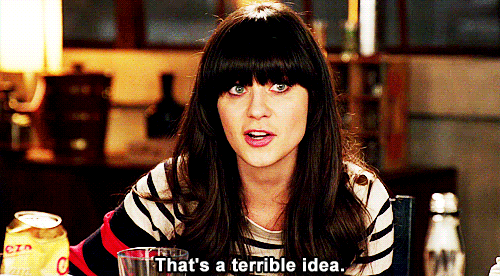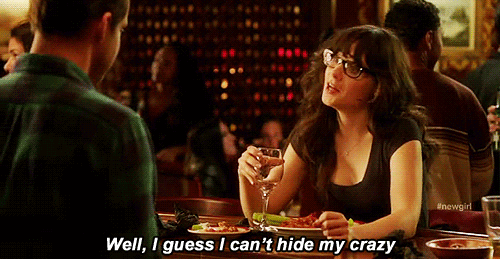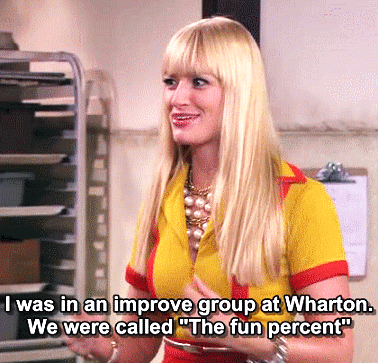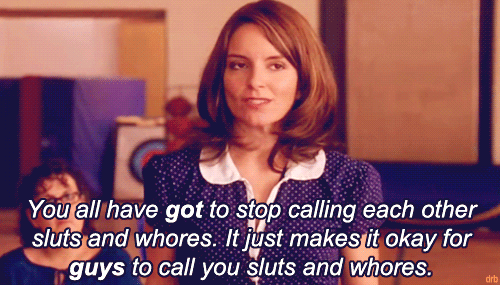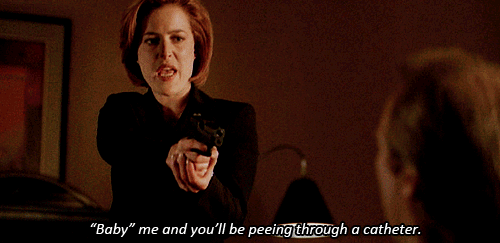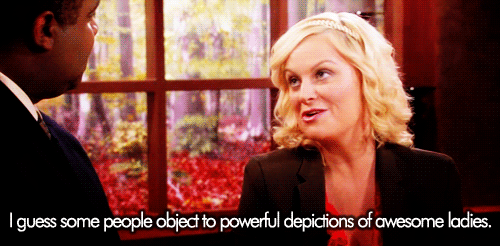E. Kristin Anderson's Blog, page 21
June 8, 2014
Pride Week Guest Post from Jessica Verdi: Why the Impulse to “Fix?”
Let’s start with some terribly sad, yet painfully obvious and inarguable facts:
The world is filled with people who have negative feelings about LGBTQ people. The term “homophobia” indicates some sort of “fear,” while other words such as “hate” or “disgust” are used just as frequently. Many of these haters even go so far as to donate time, money, and political influence to keep LGBTQ people from being granted access to basic human and civil rights. Others set out to use physical violence.
It sucks. It’s wrong. It’s way too common.
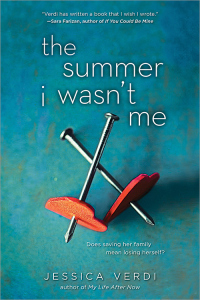
Sourcebooks Fire, April 2014.
But here’s my question, something I think most people (regardless of what “side” they’re on) don’t spend much time thinking about:
What IS it? Like, on the basest of levels, where does the desperation to change and/or punish queer people come from? What, exactly, is it that the haters, well…HATE so much? Why do they feel threatened? Why do they feel the need to fight against equality? Why is the default gay = bad?
It’s a question I’ve been asking myself a lot lately. And one that seems to have no answer. Which drives me even more insane—how can something that has no answer, something that’s not even a REAL THING, have such an impact on the way people behave and think—and in turn, the way our society runs?
My newest book, THE SUMMER I WASN’T ME, is about seventeen-year-old Lexi—she’s known she is gay for a while, and, on the inside, has always felt content with it. It’s the OTHER stuff, the outside stuff, that’s hard. “The part I hated was the hiding,” she says. “The pretending to be someone I wasn’t; the steady, tormenting harassment that came in the form of Bible scripture and church sermons; the constant fear that if people found out, they would hate me, ridicule me, possibly even hurt me. That stuff sucked.”
And when Lexi’s mother, a woman trapped in a debilitating depression after the death of her husband, discovers Lexi’s in love with a girl, she shuts Lexi out completely. Desperate to regain her mother’s love and keep what’s left of her family together, Lexi agrees to spend the summer at a camp that claims to turn gay people straight. This book involved a ton of research, and every single “reparative therapy technique” you see Lexi and her friends being subjected to is something that happens in real life. Because, yup, these camps do actually exist. They’re called conversion camps, or ex-gay camps, or reparative therapy programs.
And let’s be clear: Not only is it impossible to change someone’s sexual orientation or gender self-identification, these programs are emotionally (and often physically and sexually) abusive.
But regardless of the moral wrongness and illegality of these places, they’re a huge business. The desperation to “fix” gay people is rampant. And even many gay people (most often those who are devout in certain religions or those who have been threatened with disowning by their families) want to “fix” themselves.
So I’ll ask the question again: WHAT IS THIS IMPULSE? Deep down at its core, what’s behind it? The existence of LGBTQ people doesn’t pose a threat to heterosexual people’s lives or cause a detriment to society in any way, shape, or form. So, what then?
Some Christians will claim it says homosexuality is a sin in the Bible. But to my understanding, A) Jesus never said a word about homosexuality, B) the passages about homosexuality are both scarce and open to wide interpretation, and C) these same Christians don’t follow most of the other “teachings” of the Bible near as rigidly—or at all. (You know, the ones about not cutting your hair or not eating animals or keeping new mothers out of church [??] or not working on Sundays or the various incest- and slavery-related ones…)
So what is it? Why do so many people harbor such hatred? Why does Fox News make zillions of dollars spouting this stuff? Why are there still parents disowning their gay children, and LGBTQ-related hate crimes happening every day, and THIRTY-THREE states where same sex marriage is not yet legal?
If anyone can give me a solid, rational, eloquent reason (and no, “it’s a sin” or “it’s not God’s will” or “it’s Adam and Eve, not Adam and Steve” don’t count), I’ll give you a dollar.
Because I just don’t understand it. Why do people care so much? Love is love, relationships are relationships, sex is sex. Case closed. Why aren’t we spending our time and effort and money on fixing our global warming issue, or combatting young girls being sold into sex slavery in third world countries, or ANYTHING ELSE worth actually caring about?
Whenever I’m asked how I self-identify, I find it a tricky question to answer. I’m happily married to a man, but I hate the term “straight,” because the word implies some sort of “correctness.” When it comes to this stuff, there is no right and there is no wrong. And I hope we’ll continue to discuss these terms and ideas, and that someday that impulse to “fix” will go away because we’ll all finally understand that there’s nothing broken in the first place.
Happy Pride Month, everyone!

Jessica Verdi.
Jessica Verdi lives in Brooklyn, NY, and received her MFA in Writing for Children from The New School. She is the author of the contemporary young adult novels THE SUMMER I WASN’T ME, MY LIFE AFTER NOW, and the upcoming WHAT YOU LEFT BEHIND. Jess is continually reminded of how lucky she is to get to write and publish stories about things she thinks are important. By day, Jess is a Senior Editor at Crimson Romance, Adams/F+W’s romance eBook imprint. She is represented by Kate McKean of the Howard Morhaim Literary Agency. Some of her favorite things include seltzer, Tabasco sauce, TV, vegetarian soup, flip-flops, and her dog. Follow her on Twitter @jessverdi.





June 6, 2014
I’ve Been Working On Things
Projects. We all have them. And it seems like everyone is talking about theirs, and I’ve been keeping quiet about mine. Recently, at a farewell lunch for a writer friend, I asked another writer friend of mine what she was working on. And after she told me about her projects, she asked me about mine. Me, being the awkward silence hater that I am, spat out, “Oh, God, I don’t even know!”
For a second, I realized it was true. I’m not writing a new manuscript right now, I’m not ankle-deep in a revision, and I’m not sure what I want to write next.
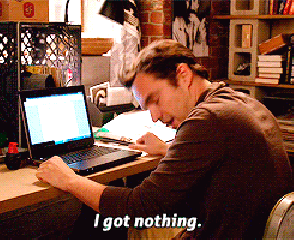
That’s kind of an awkward place to be for a writer. Especially when, like me, you’ve got work on submission, so you’re kind of wondering how that’s going to go before undertaking anything huge. But writers should always be writing. And I know that. I know that and I AM that. Inherently, I can’t not be working on something. Which, after I realized that I’d told my friend the truth, made me realize I was also kind of lying. And I added, “Well, I’ve got all this poetry stuff going on, so I figure, if that’s where my success is right now, that’s where I’m going to focus this summer.”
Which brings me to what, it appears, I’m working on: found poetry.
A few months back, during a bout of mania-fuelled insomnia, I made the ill-advised decision to check out Groupon. You know what’s worse than online shopping when you’re prone to these manic episodes? Online shopping apps. Anyway, I’m usually pretty good about this stuff, but, coming off of the high that was Oulipost, I decided I needed more fuel for my found poetry fire. And there were all these Groupons for magazine subscriptions. Between Groupon and a deal I found on Amazon, I subscribed to like five different magazines. Magazines I don’t read, and probably wouldn’t even buy at the supermarket, no matter who was on the cover. Magazines like Glamour, Allure, and Harper’s Bazaar.
Anyway, I’ve decided that to make what ended up being like $35 (hey, deals!) and way too many dead trees count, I’m going to be working my butt of to mine poems out of these magazines. To maybe even write enough to submit as a full-length collection.
And when I’m not creating erasure poems with these magazines, which have just started showing up in my mailbox (I’m positive that my mailman is judging me. I’m okay with it.), I’ve got photocopies of pages from books I’ve been reading. I’ve been obsessively leaving post-it tabs in some of my recent reads: TEASE by Amanda Maciel, THE ART OF SECRETS by James Klise, EXPIRATION DAY by William Campbell Powell, and SHE IS NOT INVISIBLE by Marcus Sedgwick. I briefly got out of the habit while reading books on my Kindle, but I fully plan on seeing what I can find in the book I just read for the deviantART CRLiterature Book Club: THE HITCHHIKER’S GUIDE TO THE GALAXY by Douglas Adams.
I scan and print out tabbed pages, scribble on them, write poems with the found language, and sometimes post them online. It’s a lot of fun, and I’ve been sending out batches of found poems to magazines. Reactions have been varied. I remember when I was at AWP, with Found Poetry Review on my badge, since I was speaking on their panel. I spoke with editors who were very much YES FOUND POETRY IS SO COOL. And I spoke with editors who didn’t know much about it. And editors who didn’t quite know what to do with it. I spoke with one editor who flat out told me that centos were — I forget the word he used now, but it was strongly negative. I had a nice talk with that editor, but I’m torn on whether to submit found work to his magazine. (You know what? I’m too contrarian not to. Off it goes tomorrow!)
Novels, though? I feel like whenever I go more than a month without working on a novel draft (and I always go this long between drafts — you’ve gotta take a break!) I completely forget how to novel. This, of course, can’t be true, since I keep writing novels. But it’s tough to set a goal for yourself and fail. I wrote back in March that I’d be attempting Camp NaNoWriMo in April. I did not write a single word. That was okay, of course, because Oulipost kicked my butt. And I know I wouldn’t have been successful with either Oulipost OR the NaNo novel if I’d done both. My problem now, though, is that I’m kind of afraid to do Camp NaNo in July. Even though I think I kind of need to. Stretch my novelling muscles. And then, perhaps, revise, revise, revise.
Or I could wait until actual NaNo in November. Or, like the past few years, I could do both! I like challenges.
In the mean time, I’m poem girl. I’ve got two chapbook manuscripts that are being sent out into the ether (one is selected results from the Oulipost project), and I’m making use of both my regular reading and that ill-advised magazine shopping spree in order to write new material.
As long as I’m writing. That’s the point. Writers write.
So what are you working on?





June 5, 2014
Review: SECOND STAR by Alyssa B. Sheinmel
In this lyrical novel about loss and summer love, Alyssa B. Sheinmel cracks open J.M. Barrie’s Peter Pan, creating a whole new world of surfer boys and California beaches.
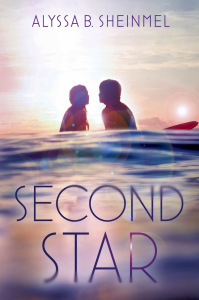
Farrar, Straus, and Giroux, Mary 2014.
SECOND STAR begins at the bonfire after Wendy Darling’s high school graduation. A brilliant student set to metriculate at Stanford in the fall, Wendy should be elated, ready to start her new life. But she can’t shake the shadow of her brothers, John and Michael. Now missing for several months and presumed dead, her brothers left her household in ruins. Her parents are like ghosts, and even though people think Wendy should be ready to move on, she isn’t.
Determined to find out what happened to John and Michael — two skilled and adventurous surfers — Wendy goes on a drive and ends up at a mysterious beach populated by boys who are just like her brothers. Pete, the beautiful stranger, is hard to ignore. And soon — despite salty Belle’s sneers — Wendy has decided to spend as much time as it takes at this beach to find her brother. But then she meets Jas, rumored to be a terrible guy and a drug dealer. The thing is, he’s the only one who seems to know the truth.
SECOND STAR is gorgeously written, a clever take on the retelling of a classic, and a must-read for beach-y book lovers. This is definitely one you don’t want to miss. Even if (or maybe because) every twist will leave you misty-eyed.





June 4, 2014
Review: EXPIRATION DAY by William Campbell Powell
Set in a not-too-far future London, England, William Campbell Powell‘s EXPIRATION DAY explores the possibility of a global infertility crisis. In a world where women can’t conceive, the government has teamed up with a giant robotics company to supply those who can afford it with child substitutes. Nobody is supposed to know who the “real” children are and who the robots are. One thing that preacher’s daughter Tania is sure of: she’s really lucky to be a real human.
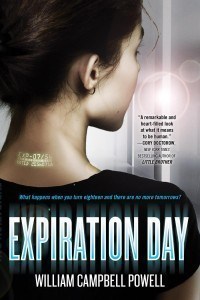
Tor Teen, April 2014.
Spanning the course of several years in Tania’s life, EXPIRATION DAY chronicles her first love (another human boy she met at a 1970′s-themed vacation park), her struggles with bullies at school, and her love of music. As the secrets of her modern society are slowly unveiled to her, Tania is finding herself more conflicted than ever. It’s common knowledge that when they’re eighteen years old (and sometimes sooner, in emergencies), android children are terminated, returned to the company that created them. The families are meant to move on. But, since her dad runs her village’s church, she sees a lot of grieving parents. And she doesn’t know how right any of this robot stuff is. And there’s one truth that will either break her completely or make her strong enough to create change.
EXPIRATION DAY is beautifully written, and the way it explores this emotional dystopia is both intense and exciting. William Campbell Powell‘s world is both distant and disturbingly realistic. This is a great read for fans of traditional sci fi who don’t mind reading a book that has a few box-of-tissues moments.





June 3, 2014
Review: KILLER INSTINCT by S.E. Green
Lane is pretty sure she’s a bad person. For one thing, she has a really hard time dealing with other people. If you’re not related to her, she’s pretty much not interested. In fact, Lane can barely even deal with her perky, popular sister Daisy. She’s pretty into the dogs at the clinic where she works. And her boss is kind of cute, so there’s that. But as far as the rest of humanity is concerned? She sees the worst in them. And it probably doesn’t help that she’s obsessed with serial killers. In fact, she thinks she might be one.
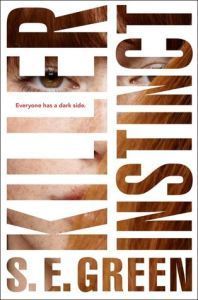
Simon Pulse, May 2014.
Since her parents both work at the FBI, Lane has sneakily found access to things she shouldn’t be able to see. And when a famous killer — the Decapitator – reappears in her home town, Lane wants to find him before her parents do. For one thing, she’s begun going on vigilante missions in disguise. No kills yet, but definitely some tasering and martial arts kick-assery. But Lane doesn’t know how long she can hold back from going all the way.
The thing is, the Decapitator knows Lane. He knows where she lives. He knows where she goes to school, who she cares about, and what she does in secret. And when he starts communicating with her in secret, Lane is both terrified and more excited than she’s ever been.
A combination of Dexter and Veronica Mars (leaning more toward Dexter), KILLER INSTINCT by S.E. Green is chilling, brutal, and impossible to put down. And with plenty of clues to keep you guessing, there’s a chance you won’t see the twist coming. And isn’t that one of the best parts of a good whodunnit?





June 2, 2014
Review: THE HAVEN by Carol Lynch Williams
In the world of THE HAVEN by Carol Lynch Williams, there are two kinds of people: Terminals and Wholes.
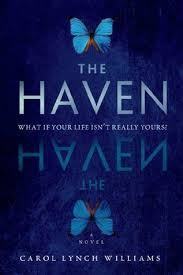
St. Martin’s Griffin, March 2014.
The terminals live in places like The Haven, where teens are kept apart from the regular population because they are sick. Often they are taken away from daily (closely monitored) activities for tests. And sometimes they come back with amputations. Sometimes they don’t come back at all.
Kept calm by the Tonic, most of Shiloh’s friends don’t remember much. And they’re happier that way. The teachers keep an eye on everything, making sure that nobody is too upset, and making sure that the students who need more tonic get it. The Tonic isn’t working on Shiloh, though. And even though she doesn’t want to be, she’s curious. When she meets another student — a male — who might have some answers for her, she can’t help but risk everything to separate the reality from a worldview that is seeming more and more false.
THE HAVEN is a compelling, disturbing book. The teens in the story read books like Romeo and Juliet that have been censored and rewritten in order to perpetuate the rhetoric that is being fed to Shiloh and her peers. The teens’ food is monitored. They are drugged. They feel sick when coming in contact with the opposite sex. Because it’s wrong. Even developing friendships is wrong. Shiloh’s world is twisted and intriguing. And Carol Lynch Williams‘ story will leave you with a sour taste in your mouth. But that’s kind of the point. THE HAVEN is an uncomfortable book to read. But it’s a really fantastic read. Fans of recent dystopians like DIVERGENT and classics like A BRAVE NEW WORLD will surely be intrigued by this recent addition to the genre.





May 30, 2014
Review: LIV, FOREVER by Amy Talkington
Who doesn’t love a good Ghost Story? Okay, maybe some people aren’t into the scary and the spooky. But for those who dig their ghost stories with a side of snark and just enough serious, LIV, FOREVER by Amy Talkington is for you.
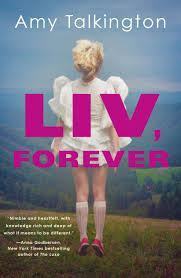
Soho Teen, March 2014.
Told from the point of view of art prodigy Liv, a scholarship student at the prestigious Wickham Hall, LIV, FOREVER is part love story, part mystery, and one hundred percent creepy. Because, while Liv, as a former foster kid, never thought she’d have the opportunities afforded her at Wickham, those opportunities will be short-lived. Because Wickham has some serious secrets — secrets that start to reveal themselves on the night that Liv is murdered. With the help of her new pal Gabe — a cute loner who can actually see spirits — Liv is on a mission to figure out what happened to her. AND what happened to the other ghosts who show up around campus. Soon they have discovered that the school’s history is just as haunted as its present, rife with dirty secret society secrets. Fun, scary, and dark, LIV, FOREVER is a must-read for mystery fans. With a touch of black comedy and plenty of wit, Amy Talkington has crafted a world that will leave readers wanting more. I guarantee you that you’ll be wanting more, too. 





May 29, 2014
Review: SHE IS NOT INVISIBLE by Marcus Sedgwick
I love a good mystery. Especially a beautifully-written, well-plotted mystery like SHE IS NOT INVISIBLE by Marcus Sedgwick. Told from the point of view of a visually impaired teen, this is the story of a missing father, a family in trouble, and a daughter who has to have faith that she can fix things.
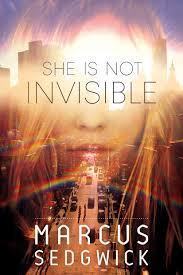
Roaring Brook Press, April 2014.
Laureth Peak is the daughter of a famed, but struggling novelist. Her dad is known for flights of fancy, but this last trip has left her mother in a tizzy, and Laureth wondering if she knows as much about her dad as she thought she did. When, while helping her dad with his fan mail, she discovers a letter from an American who has recovered her father’s notebook, Laureth knows something’s wrong. For one thing, the notebook was found in New York. Which is not where her father is supposed to be. For another, her father hasn’t been returning her phone calls, which is unlike him.
So she buys herself and her much younger brother airline tickets to the states and leaves while her mother is out of town visiting family. Soon she’s in a brand new American city, with only her bizarre little brother as a guide, trying to find her father, clue by clue, all while trying not to let her under-age-ness — or her inability to see — get in her way.
This is a beautiful story of family, of friendship, of trust and adventure. I love the way Sedgwick showed the world through the eyes of a blind girl. The way it was easy to forget sometimes, that she was different. The way she both took care of her brother, and the way the little boy took care of her. Her bravery, her mistakes, and her story are brilliant. And I cannot fathom a world in which this book does not get an Edgar nod. Because around every corner, even when you think you’ve figured something out, Marcus Sedgwick takes you for a ride.





May 28, 2014
Review: THE STRANGE AND BEAUTIFUL SORROWS OF AVA LAVENDER by Leslye Walton
So. I recently read this incredible book called THE STRANGE AND BEAUTIFUL SORROWS OF AVA LAVENDER by Leslye Walton. It’s taken me a while to figure out how to review this book. Because I have so many thoughts on it. And it’s hard to sum up a book that takes place over several generations, with the main character shifting over time, but with the narrator staying the same. So sometimes the narrator — one strange girl named Ava Lavender — is telling the story of a character who is a great-great-grand-relation of hers from decades in the future. And sometimes she’s narrating her own story of tragic loss.
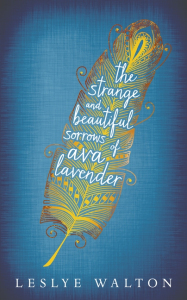
Candlewick Press, March 2014.
This book has a lot of tragic loss.
And yet, with all that loss, this book is beautiful. The language is beautiful. The bread in Ava’s grandmother’s bakery is palpably fragrant, every time a character steps into the shop. The rain falling in the Pacific Northwest smells like saltwater and earth. And Ava, a girl born with wings to an unwed mother in the 1940s, is almost a song of a character.
This book is clever and dynamic. I often wondered to myself (and to friends who were reading or about to read or who had already read the book because honestly it’s a book you HAVE to talk about) why this book sold as YA. Because it would do equally well labelled as magic realism and shelved in adult literary. It speaks to teens, though. It speaks to people. And there were scenes that were so hard to read, but I turned the pages anyway. Because this book spoke to me.
Leslye Walton is an author to watch. If you haven’t picked up AVA LAVENDER yet, you really ought to. It’s a fantastic read. I hope it speaks to you, too.





May 27, 2014
On Privilege and Ladies Helping Ladies
Hi there. I don’t wax political here very often. My thoughts on this kind of thing are generally not why you follow me or my blog. But I thought that I might be able to say something worthwhile on this topic. And this is a pretty good place to do it.
Here’s the thing. Violence against women is a huge problem in this country — in many countries. And, unfortunately, sometimes it takes a man to make waves, because women’s voices are undervalued and under-heard. (For the record, I have no interest in hearing about men’s rights movements and “but I’m not that kind of guy” stuff because this isn’t about dudes, it’s about ladies, and the fact is, ladies get a rough beat whether you can see it or not.)
Privilege is an ugly word. It took me a LONG time as a white, straight women from a middle class family to understand. I felt accused. I felt hated. I felt judged. For this whole “privilege” thing. When I finally realized what it meant — which was none of the things I thought it meant — it was a breath of fresh air. OH! I thought. It means that society has given this thing to me tacitly, and it has little to do with what I can control or how much of an advocate I am or whether my best friend is brown or gay or Jewish. It has nothing to do with what I think or feel. It’s about what everyone else sees and how that affects my life and my actions. And I realized that everyone else — often including myself — was living with a very difficult to understand tunnel vision. We value certain voices above others. Because we don’t even THINK about it. These are learned behaviors that are so hard to unlearn. Ever heard the saying “Everyone’s a little bit racist?” (Points if you know the song from Avenue Q!) Well, everyone’s a little bit classist, too. And sexist. And on and on.
The good news is, once you can own up to this, as a person, and say to yourself, shit, that thought I just had about that stranger was totally bigoted. Or you can say, shit, I totally just silently judged that girl over there for wearing a too-short dress. Well, you’ll be on your way to effecting change.
But thinking to yourself isn’t enough. And, yes, straight white men from middle to upper class families are the Kings of Privilege. Yes, they have voices that people like to listen to. But we have voices, too. Why don’t we use them? If enough of us do, someone will hear.
So, ladies. I have some challenges for you. In the wake of the recent tragedies that are being blamed on the misogynistic, man-centric culture that we have fostered in the United States, you can either Tweet into the ether and share articles around, or you can do something. Here are some somethings I think you should try to do:
1.
Stop using the word “slut.”
Even if you’re just talking to your bestie and saying “Hey, slutbucket, what’s up? We still on for coffee?” Well, even then, you’re making that word a part of your lexicon. And it makes it easier to see a girl at the office or at school wearing a mini skirt and think “Whoa, So-and-So is rockin’ that slutty outfit!” And even if you mean it in a positive way, it’s a slippery slope. Because slutty means “in the manner of a slut.” And what is a slut? The implication is that a slut is a promiscuous woman who doesn’t respect herself. (The issue of promiscuity being a negative is something else…because what looks “healthy” in terms of sexuality for one person isn’t going to be “healthy” for another. But let’s just go with this definition for now and attack the idea of promiscuity later.) So, when we use this word to describe someone’s clothes or style or a photo they posted to Instagram, we’re saying that the girl in the clothes/style/photo wants to have sex with multiple partners, just because of the clothes/style/photo. That’s kinda messed up, right?
2.
Stop using the words “manwhore” & “manslut.”
I know what you’re thinking: But this totally levels the playing field! Men can be sluts, too! Why, yes they can. The problem is, we feel the need to modify the word slut in order to let them be sluts. What’s up with that? I mean, we all know (I hope) that there are ridiculous double standards when it comes to exploring sexuality for men and women. A girl who sleeps around is a slut/whore/insert expletive here. A man who sleeps around is a stud/player/insert positive title here. So lame! So if we’re going to call a guy a slut, why not just call him a slut? Okay, so I just told you not to use the word slut. But let’s take it to the next level and remind ourselves constantly that the word “manwhore” is probably more degrading to women than it is to the man you’re describing. It implies that whore can only describe women unless you specify man. And that’s just silly. Sexuality (and along with it promiscuity, monogamy, virginity, and so on) isn’t a man thing or a woman thing. It’s a people thing.
3.
Stop blaming the victim.
Girls, you know you think it. When you hear someone was assaulted, you’re shocked and sad and possibly angry. That’s your first reaction. But then you ask things like “was she drunk?” And “was she at a party?” And “what was she wearing.” And “was she flirting?” We have to have all these qualifiers. Because somehow it’s easier to accept that a woman was assaulted if for some reason she was “asking for it.” And even when we don’t use the words “was she asking for it,” well, a lot of the times we’re saying or thinking just that. “Did she dance close to him?” “Was she out alone?” “Why didn’t she just get a cab?” When you hear someone was assaulted, try to stop that train of thought. And, please please please, try to stop that train of word vomit. Don’t say these things. Don’t spread rumors. Don’t comment on the news report with anything other than stuff along the lines of, “This is horrible, nobody deserves to be assaulted.” You know how angry you were at Chris Brown when he beat up Rihanna? You should be that angry every time a woman is assaulted, physically or sexually. No questions.
4.
Support the women and girls around you.
There are lots of ways to do this. Do you have a buddy system when you go out? Personally, if I am going out by myself I text a friend so she knows where I am and who I might meet. Do you cheer on the women who are achieving in your community? Because, no matter how you want to look at things, it IS harder to achieve as a woman, because you are constantly being questioned about things like whether being a mother will get in the way of your career. Or will you be able to work under pressure because of your hormones and emotions. Or you get paid less. Or you get singled out in the office. Or you are constantly called “a woman poet” or “a woman doctor” or “a woman engineer” or “a woman professor.” So. Are you supporting the ladies in your friend group? Your community? If not, do it! If you are, do it more!
So there you have it. My mini manifesto. I hope that y’all got something out of it. Or at least enjoyed reading.
I don’t usually censor comments, but given some of the hate speech I’ve seen on similar blogs this week, I will be moderating in case anything hateful or threatening shows up here. Play nice, y’all!






